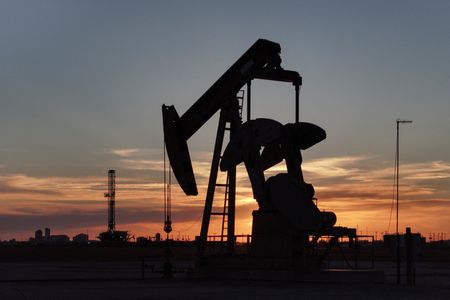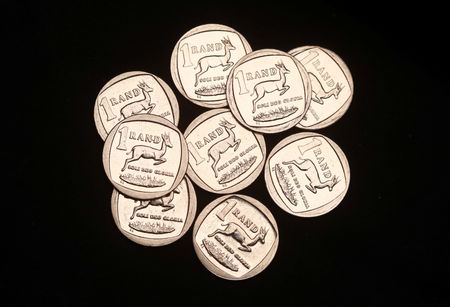By Vuyani Ndaba
JOHANNESBURG (Reuters) – South Africa’s central bank will raise its key interest rate by 75 basis points next week to brake inflation, a Reuters poll found, adding another 25 basis points in each of the following two quarters before pausing for the rest of 2023.
A majority of economists in a Sept.
7-14 poll, 12 of 20, predicted another 75 basis points to 6.25% at its Sept. 22 meeting following a similar move in July. The remaining eight expected a smaller half-point move.
The South African Reserve Bank has raised its main lending rate by 200 basis points so far in this cycle.
“We still expect the SARB to keep its foot firmly on the hiking pedal,” said Jeffrey Schultz at BNP Paribas, who like the majority expects a 75 basis point move, adding: “evidence of broader price pressures should yield another hawkish statement.”
Thereafter, the SARB is due to raise another 25 basis points in November and either January or March before pausing at 6.75% for the remainder of next year, marking a peak in the cycle, according to the poll.
Schultz expects a higher peak of 7.00% in January 2023, with the risk of higher rather than lower rates into next year if core inflationary pressures prove more problematic.
The U.S.
Federal Reserve – whose actions are already putting lots of pressure on emerging markets – is expected to deliver another 75 basis point hike next week and likely will hold its policy rate steady for an extended period once it peaks, according to a Reuters poll released on Tuesday.
South African inflation was expected to average 6.7% this year, above the SARB’s 3%-6% comfort zone, followed by 5.4% next year and 4.6% in 2024. The consensus was 0.1 percentage point quicker for the next two years than thought last month.
Producer price inflation was expected to slow markedly from an average of 14.6% for this year to 8.0% next and 4.9% in 2024, though forecasts were widely spread due to an uncertain global environment next year.
South Africa is likely to swing into a current account deficit of almost 1% of gross domestic product next year from a surplus of the same amount in 2022, which could put pressure on the rand.
“Higher unit labour costs, sticky two-year inflation expectations in Q3 and what could prompt a more vulnerable ZAR on a return to twin deficits leave us comfortable in our above consensus call on rates,” said BNP Paribas’ Schultz.
But Standard Bank economists said the moderation in many commodity prices in recent months – notably food and fuel – has for some time boded well for a likely easing of global inflation pressures.
The sharp decline in domestic fuel prices in September, with petrol prices falling over 10%, should reduce not only inflationary pressure and the risk of second-round effects but also, crucially for the Monetary Policy Committee, inflation expectations.
“We expect July to have been the peak in the consumer inflation cycle and there might be a slight moderation from August.
Of course, the latest bout of rand weakness will be inflationary but we reiterate that the inflationary impact is less than may be inferred from looking at the rand,” said Elna Moolman at Standard Bank.
A separate Reuters survey predicted the high-yielding currency to erase most of its 10% losses made so far this year, clawing back ground to 16.30/$ in a year.
Chronic power shortages continue to blight South Africa’s ability to create jobs for its youth and the economy was expected to grow 1.9% this year and just 1.5% next year.
South Africa’s GDP contracted 0.7% last quarter.
(For other stories from the Reuters global economic poll:)
(Reporting by Vuyani Ndaba; Editing by Jonathan Cable, Ross Finley and Toby Chopra)










